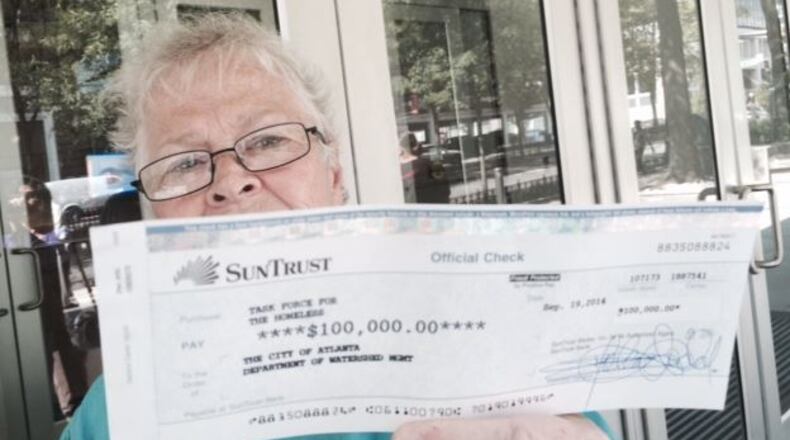The City of Atlanta on Friday demanded a controversial downtown homeless shelter pay $600,000 for long-overdue water bills or go dry in a week — hours after rejecting a $100,000 payment.
Steve Hall, lawyer for the Metro Atlanta Task Force for the Homeless, decried the demand as hardball tactics designed to shut down the shelter instead of developing a good-faith payment plan. He noted the debt figure was far higher than the $403,000 the city said the shelter owed in August.
“They saw we were able to come up with serious money and so they jacked it up to $600,000,” Hall said. “This is wrong. This is not the way government should work.”
“They wouldn’t take the check and they wouldn’t talk to us,” Hall told The Atlanta Journal-Constitution. “I found this unusual. Few creditors turn down payments of $100,000.”
The shelter had raised $100,000 from donors after the city announced in mid-August it was going to shut off its water along with nearly 1,000 seriously delinquent commercial accounts unless they agreed to payment plans in a month . It was unclear Friday how many accounts will be shut off.
City spokeswoman Melissa Mullinax said the $600,000 figure included a bill of $147,000 from a closed account that the task force had disputed. She said the task force’s active account bill had risen to $433,000 since the overdue account was reported in August. She didn’t explain why the demanded amount was $20,000 more than the two figures she reported.
In a letter to Anita Beaty, the director of the shelter, Michael Geisler, chief operating officer for the city, said the task force hadn’t paid on either account since it paid $9,950 in July 2010.
“The City of Atlanta cannot responsibly accept the Task Force’s offer of partial payment. The Task Force is a habitual violator of payment agreements,” Geisler wrote. “Given these large balances, it is simply not responsible to continue to provide water service to the Task Force without collecting full payment on the accounts.”
Hall said the financially strapped shelter had proposed reducing the active account debt by nearly a quarter, setting up a payment plan for the rest of the owed money, and pay all future monthly bills to ensure constant debt reduction, Hall said.
“This is serious,” he said. “We had 500 people in the shelter the other night, including 100 women and children, who are going to be without water on Monday.”
Friday’s maneuvering was the latest wrinkle in the long battle between the task force — which disputes the amount of its water debt — and the city and its allies in the downtown business community and neighborhood associations who have long wanted the shelter closed.
The task force is currently embroiled in a legal battle in state court in which it contends Central Atlanta Progress, a downtown business group, undermined its fund raising to make it default on its debts, including its mortgage, in its effort to shut down the shelter.
The debt default allowed a private investor to get control of the shelter property, but the lawsuit has blocked the investor from taking possession. A federal judge dismissed a similar lawsuit against the city, ruling the city was immune from the legal action.
The shelter has been on the verge of closing in the past only for it be resurrected through legal maneuvering and Beaty’s determination. Geisler’s letter said if payment wasn’t received Monday, a work order would be issued to turn off the water. It said the city had made plans to open a 150-bed shelter for women and children, and it would ensure temporary housing for the men.
“The City of Atlanta recognizes the critical importance of homeless service organizations in our community. However, that mission does not grant you or anyone the right to disregard your legal and financial obligations,” Geisler wrote. “We can no longer allow this situation to continue when there are many other homeless service providers and non-profits that pay their water bills on time every month.”
About the Author
Keep Reading
The Latest
Featured


